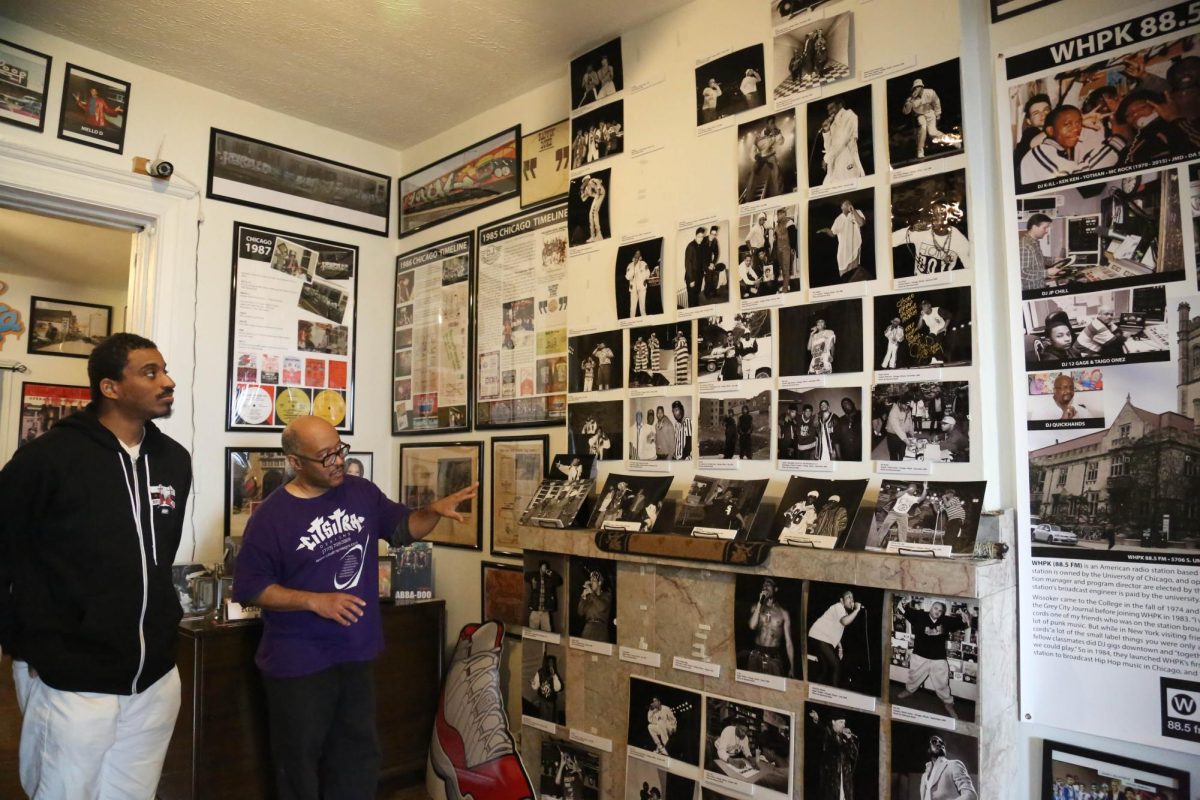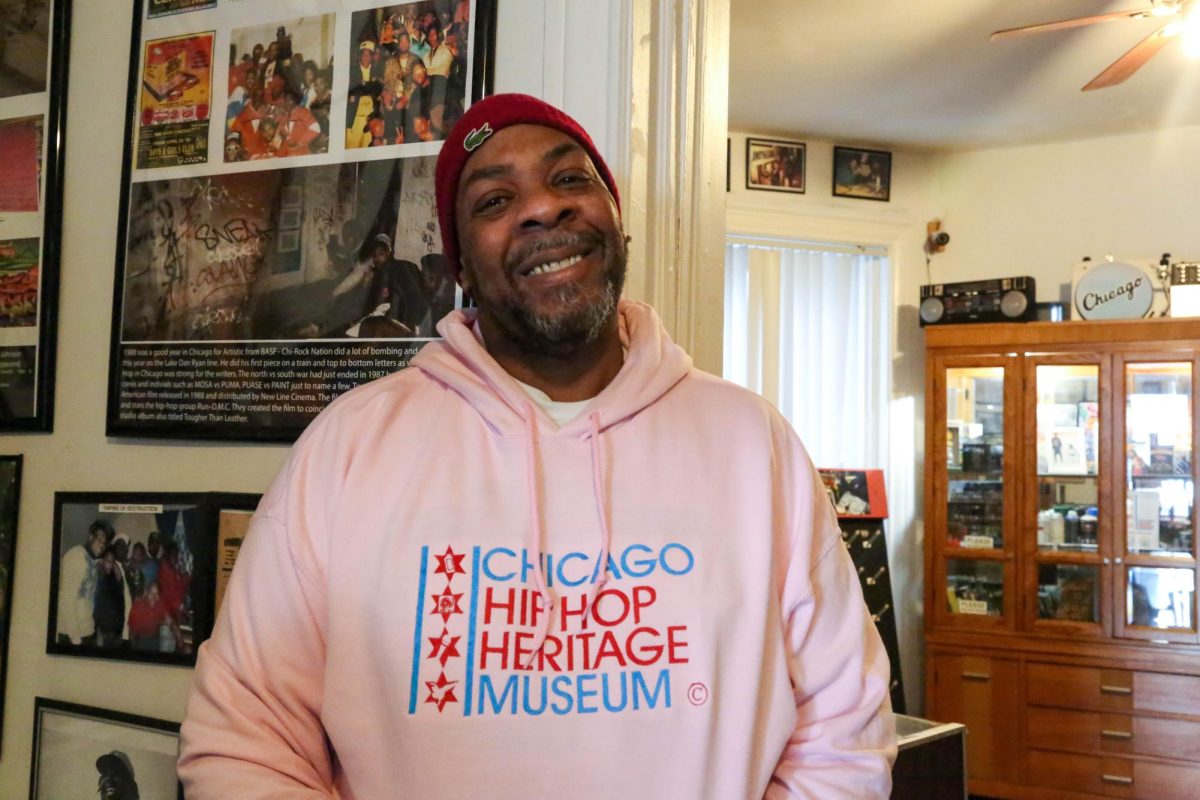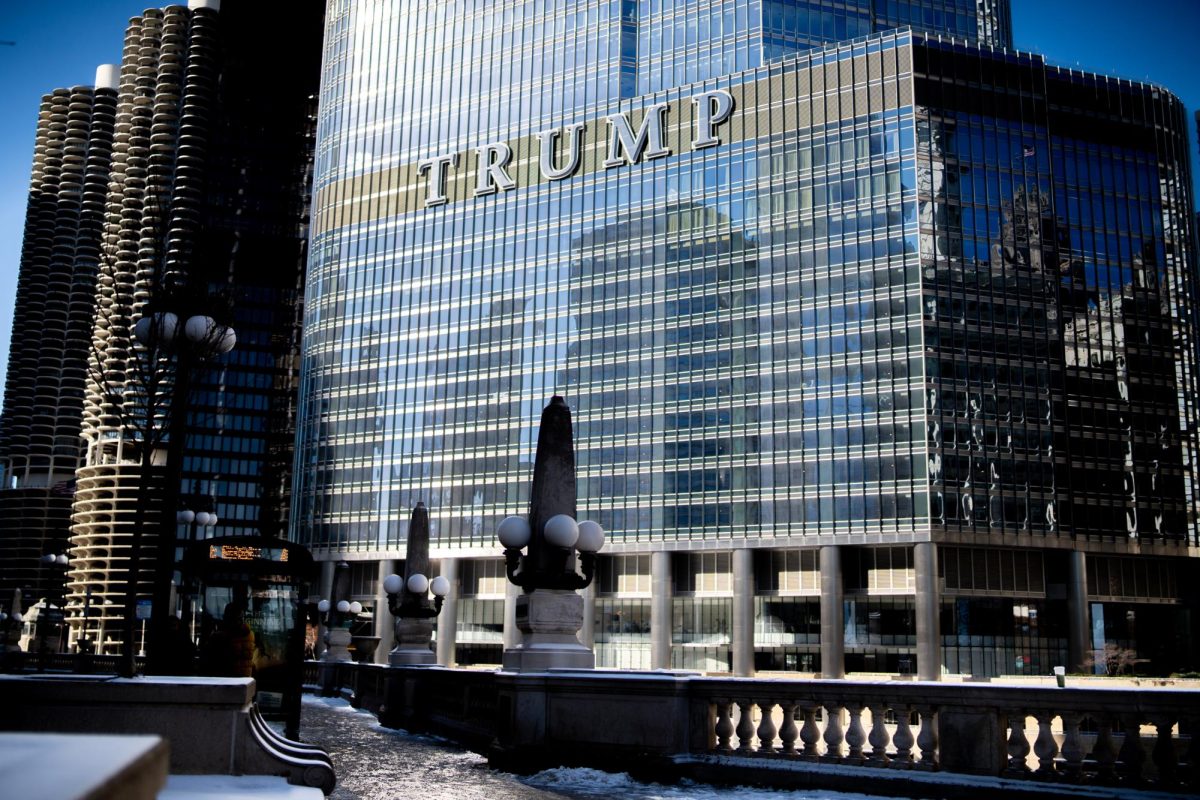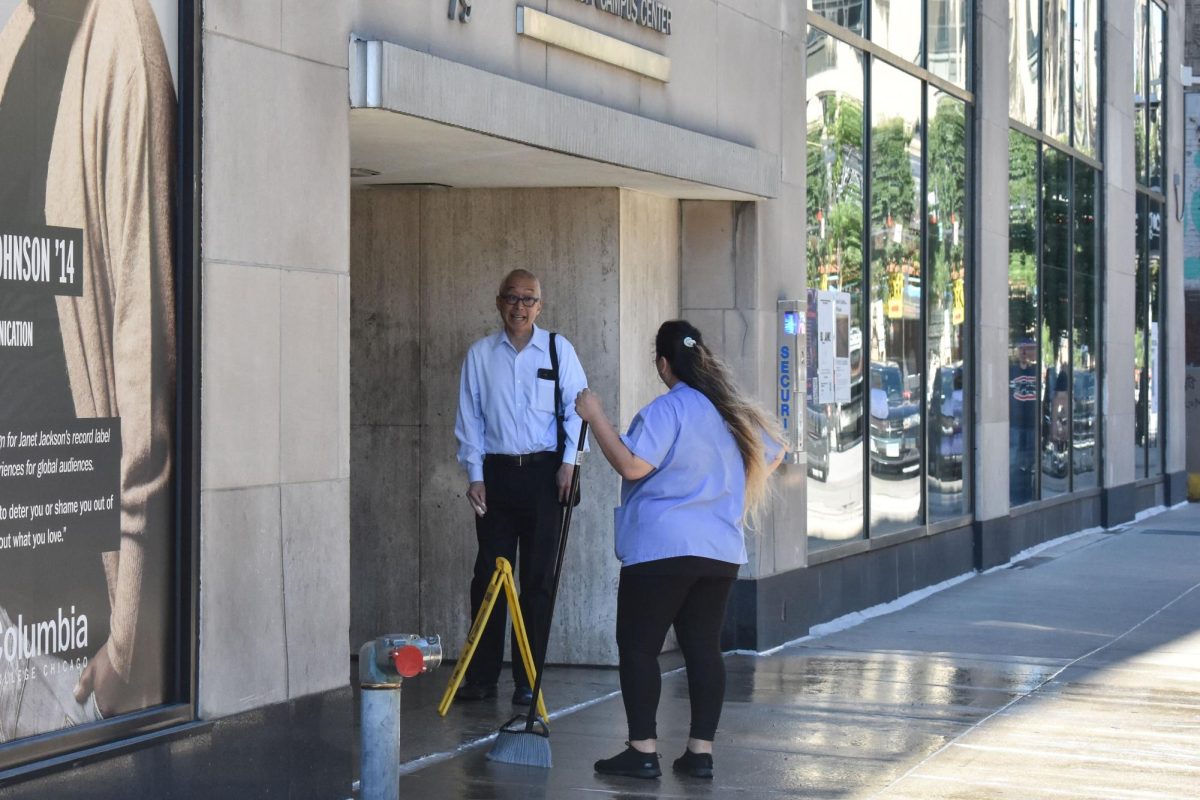THE HIP-HOP ISSUE
When it comes to the Chicago Hip-Hop Heritage Museum, “Heritage” is the most important word out of the name, according to Rico “Kingdom” Sanders, Columbia alum and co-founder of the museum.
“And so to that heritage, we look at the fact that hip-hop was supposed to be a fad… and we knew that it was going to be here to stay,” he said.
In January 2021, the building located at 4505 S. Indiana Ave., was used as the Bronzeville podcast studio by Sanders, Darrel “Artistic” Roberts and fellow Columbia alum Brian Gorman. As the Chicago Hip-Hop Heritage month came around the corner in July, Sanders, Roberts and Gorman wanted to use the space to commemorate it.
The three founders hosted a month-long pop-up exhibit of their collections of hip-hop memorabilia in July 2021, but continued until the end of the year because, “the response was so beautiful,” Sanders said.
Sanders, Roberts and Gorman decided to permanently establish the Hip-Hop Heritage Museum, after seeing the success of the pop-up.
“We’ve been working to turn it into an official museum ever since,” Sanders said. “And so we’re the ABC’s of Chicago Hip-Hop Heritage Museum.”
The museum is simple on the outside and has a sign displaying the museum’s logo in the transom window above the front door. Inside, the museum exhibits decades of hip-hop history through photos, posters, newspaper clippings and more.
Amina Norman-Hawkins, an instructor in the Music Department, has had a connection to the founders for quite a while – she and the founders have been hip-hop artists and organizers for more than thirty years.
“In many ways the museum is an extension of the Chi Hip-Hop Month, making local Chicago hip-hop history available and accessible all year long,” she said.
While hip-hop is thought to have been created 50 years ago in New York City, the museum recognizes hip-hop’s roots that were already alive in Chicago.
“Here in Chicago, we believe all that they tried to coin as hip-hop was already being done all over the world,” Sanders said.
Hip-hop culture was originally created to influence communities with forms of nonviolent and artistic expression. Sanders described hip-hop as “the first organic stop the violence mechanism, because that’s what it was created to do… to stop physical combat and found the artful way to do it.”
Hip-hop elements like DJing, breakdance and graffiti were seen as an alternative to gang violence.
“Hip-hop is all about bringing people together. In fact, the culture was created explicitly for that purpose: to bring kids together around the principles of love, peace, unity and having fun,” Norman-Hawkins said.
Every year the museum closes from April 30 to July 1 to rotate and reorganize the historic displays. For the 50th anniversary of hip-hop, the founders organized the rooms in the two-story building by decade, honoring Chicago hip-hop history from the 1970s, to present.
The first floor represents the 1970s to 1990s while the second floor serves the 2000s and current-day influences. Displayed on the walls are framed posters and concert tickets from past performances. Along the timeline, there are captioned photos explaining the history of prominent venues and artists.
Following a muraled stairway is a memorial wall on the second floor of the house. The wall is covered with pictures honoring deceased figures in Chicago hip-hop culture.
“When you talk about Hip-Hop and its heritage, you have to remember the people that were there in the beginning,” Sanders said, referring to prominent Chicago artists like Common, Twista, Chance the Rapper and Lupe Fiasco. “We try not to forget the people that made all this possible for these guys.”
“There’s no future without a past, so we are grateful to have a space like the museum to preserve, educate and create a space to celebrate the rich culture of Chicago hip-hop,” said Chris Hawkins, another co-founder of Chicago Hip-Hop Heritage Month.
The museum represents those who were involved in the evolution of hip-hop as “a tree with a bunch of branches,” according to Sanders.
“A lot of us branches are connected to each other, and all of us make each other better,” Sanders said.
Resumen en español:
Cuando nos referimos al Museo de la Herencia de Hip-Hop de Chicago, “Herencia” es la palabra más importante del nombre, según Rico “Kingdom” Sanders, alumno de Columbia y cofundador del museo. En enero del 2021, el edificio ubicado en 4505 S. Indiana Ave., fue utilizado como estudio de podcasts de Bronzeville por Sanders, Darrel “Artistic” Roberts y su compañero de Columbia Brian Gorman. Mientras el mes de la Herencia de Hip-Hop se acercaba en julio, Sanders, Roberts y Gorman quisieron usar el espacio para celebrar este género musical.
Tras el éxito obtenido como ventana emergente que tuvo un mes de duración, Sanders, Roberts y Gorman decidieron establecer permanentemente el museo del hip-hop.
El local, de sencilla apariencia externa, presenta un letrero con el logotipo del museo en la ventana sobre la puerta principal. En el interior, hay una exhibición que documenta décadas de historia del hip-hop a través de fotografías, carteles, recortes de periódicos y otros elementos.


















